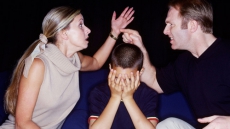Are you feeling depressed lately after spending most of your time on Facebook? Stop comparing yourself with successful peers and use the website only for sharing memories and information with new and old friends.
According to a researcher from University of Houston, social comparison paired with the amount of time spent on Facebook may be linked to depressive symptoms among users.
"People afflicted with emotional difficulties may be particularly susceptible to depressive symptoms due to Facebook social comparison after spending more time on the medium," said Mai-Ly Steers, doctoral candidate in social psychology.
For already distressed individuals, this distorted view of their friends' lives may make them feel alone in their internal struggles which may compound their feelings of loneliness and isolation.
One danger is that Facebook often gives us information about our friends that we are not normally privy to which gives us even more opportunities to socially compare.
"You cannot really control the impulse to compare because you never know what your friends are going to post," Steers said.
In addition, most of our Facebook friends tend to post about the good things that occur in their lives, while leaving out the bad.
This may lead us to think their lives are better than they actually are and conversely, make us feel worse about our own lives. To reach this conclusion, Steers conducted two studies to investigate how social comparison to peers on Facebook might impact users' psychological health.
Both studies provide evidence that Facebook users felt depressed when comparing themselves to others.
"It does not mean Facebook causes depression but that depressed feelings, lots of time on Facebook and comparing oneself to others tend to go hand in hand," Steers noted.
The research indicates the act of socially comparing oneself to others is related to long-term destructive emotions. Steers hopes the results of these studies will help people understand that technological advances often possess both intended and unintended consequences.
The studies were published in the Journal of Social and Clinical Psychology.





